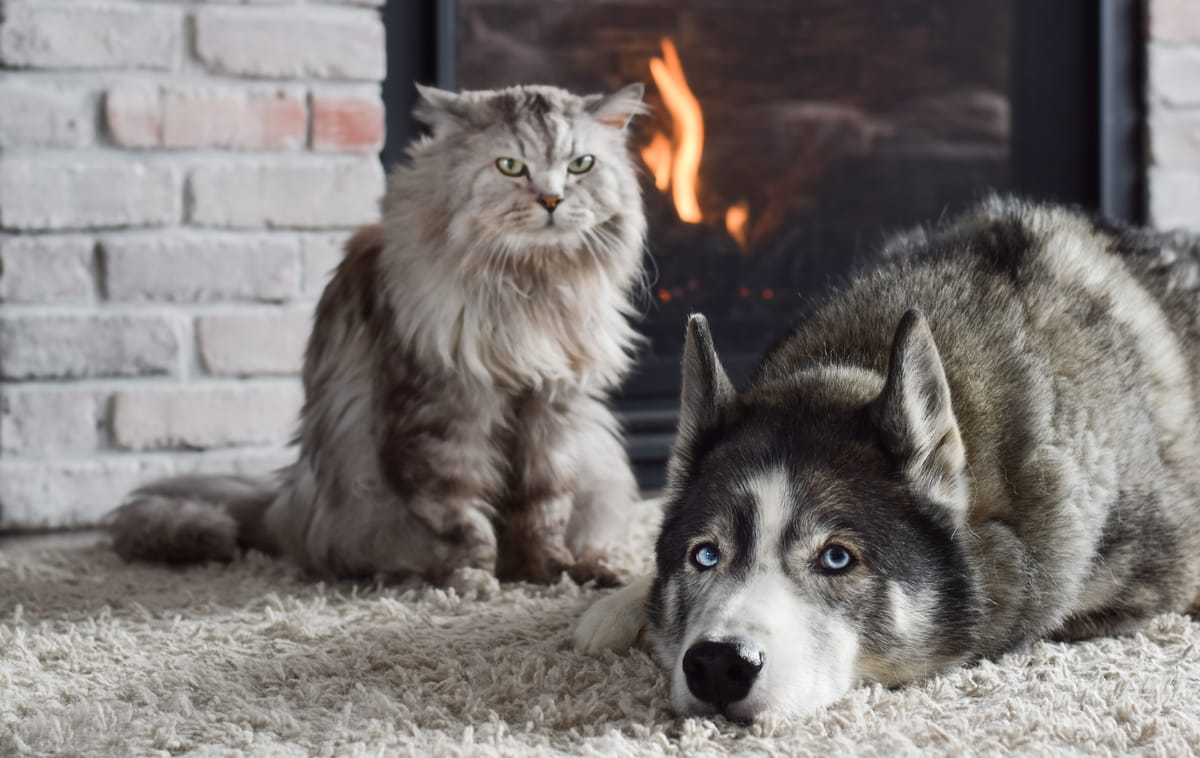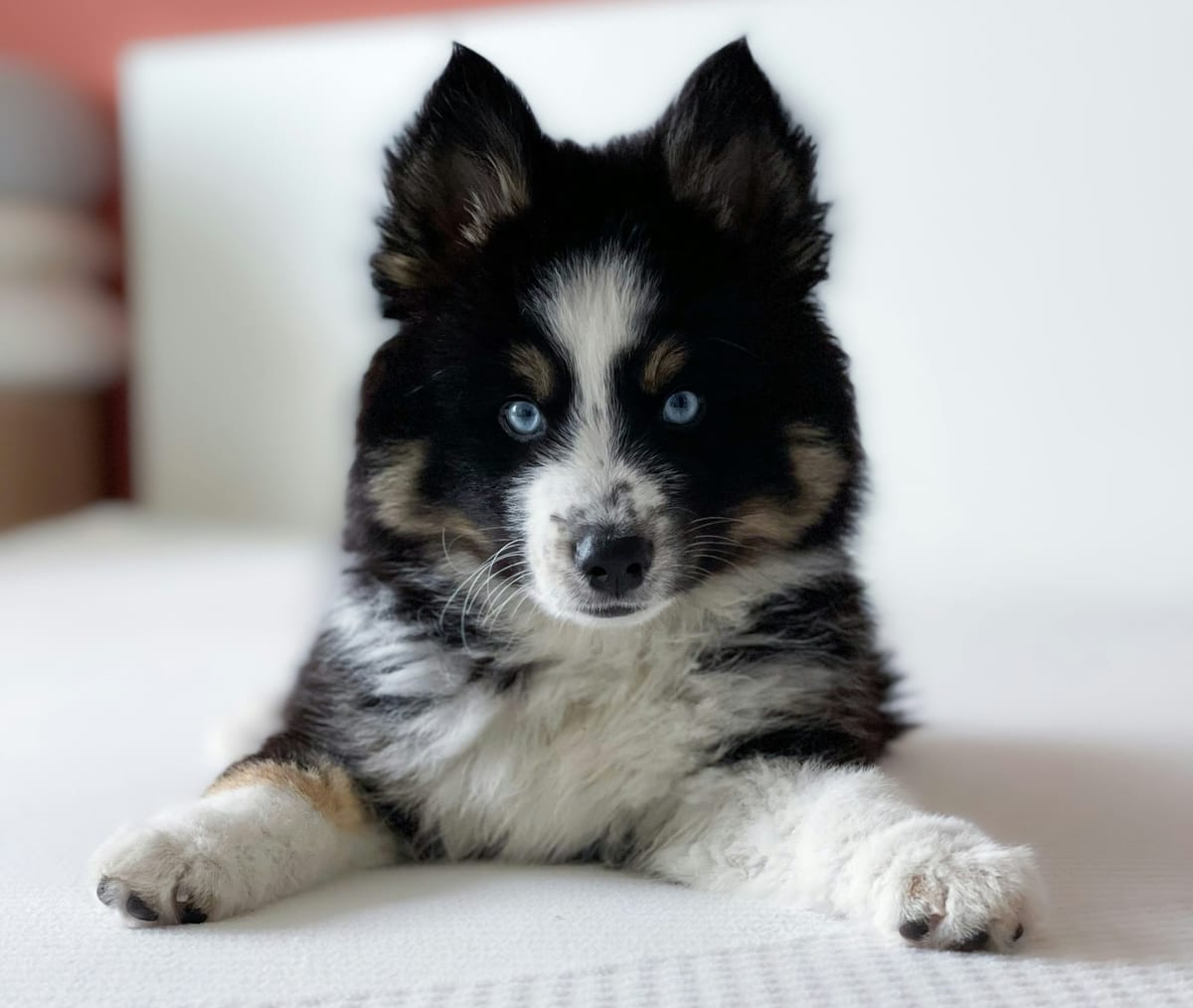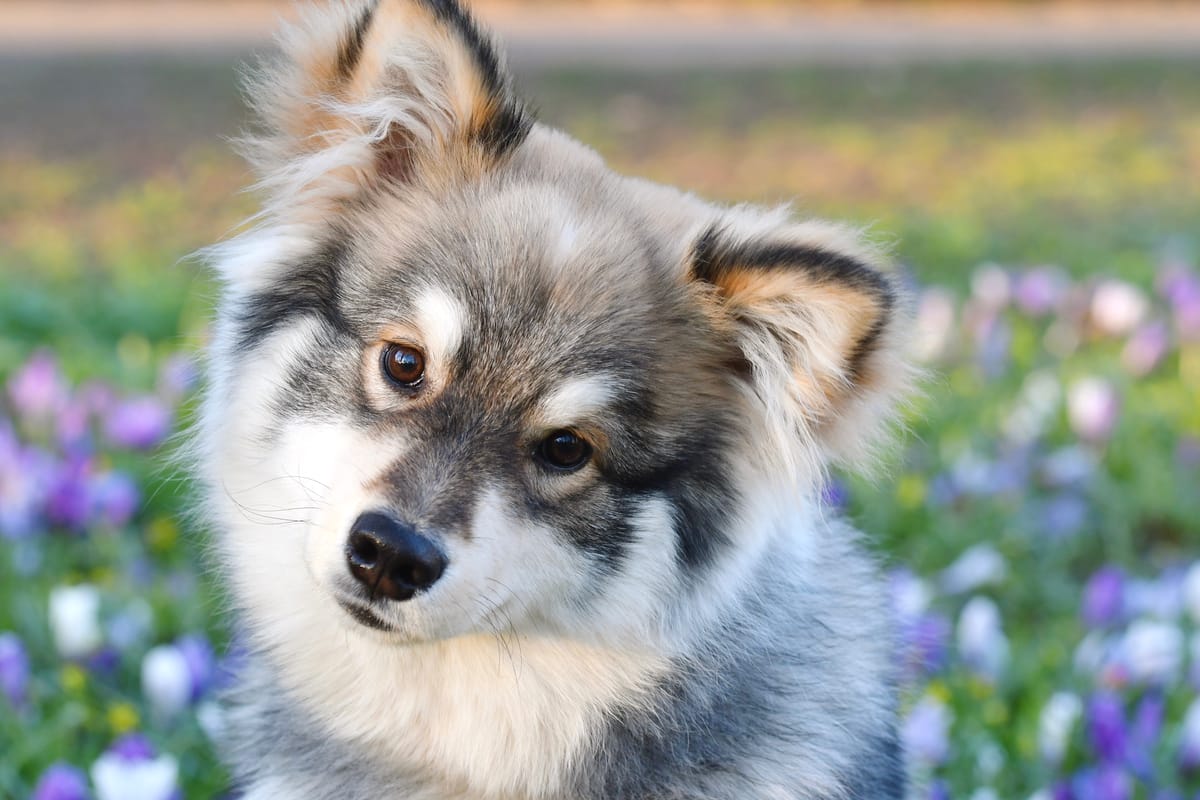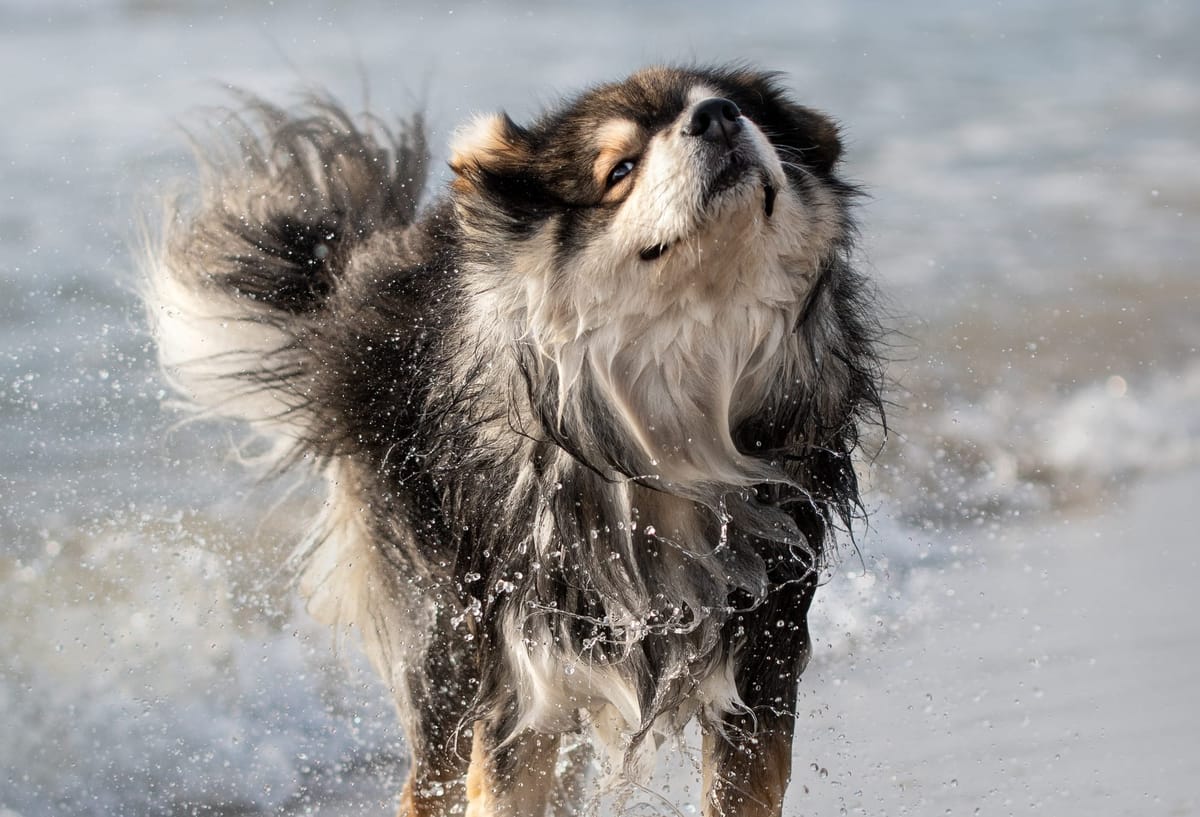Pomskies, a crossbreed between a Pomeranian and a Siberian Husky, have been gaining popularity in recent years due to their adorable appearance and playful personality. However, many potential owners may wonder if their Pomsky can be registered with the American Kennel Club (AKC). The AKC is the largest purebred dog registry in the world and provides registration for over 190 breeds.
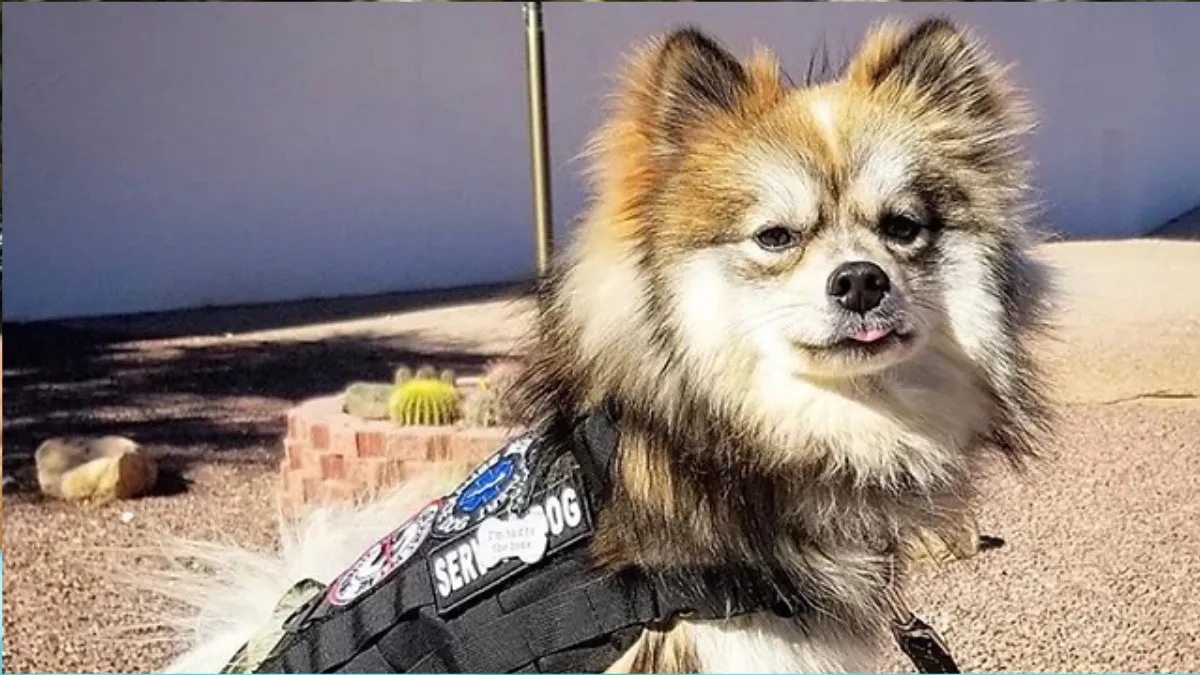
When it comes to Pomskies, the answer is not straightforward. Since Pomskies are crossbred, they cannot be registered with the AKC as purebred dogs. However, there are options for Pomsky breeders to register their dogs with other organizations such as the International Pomsky Association (IPA) or the Pomsky Club of America (PCA). These organizations have their own set of standards and guidelines for registration, which may differ from the AKC's standards for purebred dogs.
It's important to note that registration with any organization, including the AKC, does not necessarily guarantee the quality or health of the dog. Potential Pomsky owners must do their research and find a reputable breeder who prioritizes the health and well-being of their dogs. By doing so, owners can ensure that they are bringing home a happy and healthy Pomsky, regardless of whether or not they are registered with the AKC.
Understanding the Pomsky Breed
Origin and Parent Breeds
The Pomsky is a relatively new breed, originating in the United States in the early 2000s. It is a crossbreed between the Pomeranian and the Siberian Husky. The idea behind the Pomsky was to create a smaller version of the Husky, with the Pomeranian's cute and fluffy appearance.
The Pomeranian is a toy breed that originated in Pomerania, a region in Germany and Poland. It is known for its small size, fluffy coat, and lively personality. The Siberian Husky, on the other hand, is a medium-sized working breed that originated in Siberia. It is known for its wolf-like appearance, thick coat, and high energy levels.
Physical Characteristics
The Pomsky is a small to medium-sized dog, weighing between 20 and 30 pounds and standing 10 to 15 inches tall at the shoulder. Its appearance can vary depending on its parentage, but generally, it has a fluffy coat, pointed ears, and a curled tail. The coat can be a range of colors, including black, white, gray, and brown.
Temperament and Behavior
The Pomsky is known for its friendly and playful temperament. It is a social dog that enjoys being around people and other pets. It is also intelligent and trainable, making it a good choice for first-time dog owners. However, it can be stubborn at times, so consistent training is important.
Health Considerations
Like all breeds, the Pomsky is prone to certain health issues. One of the most common health issues in Pomskies is hip dysplasia, a genetic condition that affects the hip joints. Other health issues that Pomskies may be prone to include eye problems, dental issues, and allergies.
The life expectancy of a Pomsky is around 12 to 15 years, which is similar to that of its parent breeds. With proper care and attention, the Pomsky can make a loving and loyal companion for many years to come.
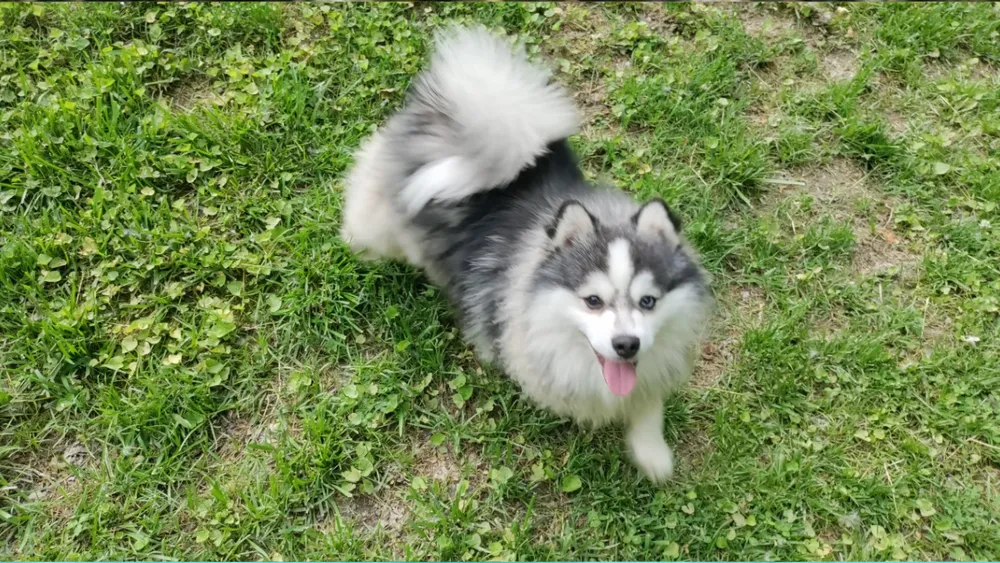
| Entity | Relevance |
|---|---|
| Pomsky | The main subject of the article |
| Pomeranian | One of the parent breeds of the Pomsky |
| Siberian Husky | One of the parent breeds of the Pomsky |
| Traits | Describing the physical and behavioral characteristics of the Pomsky |
| Appearance | Describing the physical appearance of the Pomsky |
| Temperament | Describing the behavioral characteristics of the Pomsky |
| Health issues | Discussing common health issues in the Pomsky |
| Hip dysplasia | A specific health issue that Pomskies may be prone to |
| Life expectancy | Discussing the lifespan of the Pomsky |
AKC Registration Overview
To many dog owners, AKC registration is the ultimate mark of pedigree and quality for their beloved pets. The American Kennel Club (AKC) is the largest purebred dog registry in the world, and their registration process is a rigorous one.
Criteria for AKC Registration
To be eligible for AKC registration, a dog must be purebred and have a registered kennel name. The dog's parents must also be AKC registered, and the litter must be registered before the age of one. The AKC also requires that the dog be permanently identified via microchip or tattoo.
Foundation Stock Service
For breeds that are not yet recognized by the AKC, there is the Foundation Stock Service (FSS). This program allows breeders to register their dogs with the AKC and maintain breeding records until the breed meets the AKC's requirements for full recognition.
AKC Canine Partners Program
For mixed-breed dogs or purebred dogs that cannot be registered with the AKC, there is the AKC Canine Partners program. This program allows owners to register their dogs and participate in AKC events such as obedience trials and agility competitions.
In the case of Pomskies, a crossbreed between a Pomeranian and a Siberian Husky, they are not currently recognized by the AKC as a purebred breed. Therefore, they are not eligible for AKC registration. However, Pomsky owners can still participate in AKC events through the Canine Partners program.
In conclusion, AKC registration is a rigorous process that requires a dog to be purebred and meet certain criteria. For breeds that are not yet recognized by the AKC, there is the Foundation Stock Service, and for mixed-breed dogs, there is the AKC Canine Partners program. While Pomskies are not currently eligible for AKC registration, their owners can still participate in AKC events through the Canine Partners program.
Pomsky and AKC Recognition
The American Kennel Club (AKC) is a well-known organization that registers purebred dogs in the United States. However, the AKC does not recognize crossbreeds like the Pomsky, which is a mix between a Pomeranian and a Siberian Husky.
Current AKC Status for Pomskies
As of now, Pomskies cannot be registered with the AKC. The organization only recognizes purebred dogs that meet certain breed standards. Since Pomskies are a relatively new crossbreed, they do not have a breed standard yet. Therefore, they cannot be registered with the AKC.
Alternative Registries
However, there are alternative registries that recognize Pomskies. For example, the International Pomsky Association (IPA) and the Pomsky Club of America (PCA) both offer registration for Pomskies. These organizations have their own breed standards and requirements for registration.
Implications of Non-Recognition
The fact that Pomskies cannot be registered with the AKC does not necessarily mean that they are not legitimate dogs. Many people still consider them to be valuable and beloved pets. However, the lack of AKC recognition may have some implications. For example, some breeders may use the lack of AKC recognition to sell Pomskies at inflated prices. Additionally, some people may view non-AKC-registered dogs as less desirable than AKC-registered dogs.
In conclusion, while Pomskies cannot be registered with the AKC, there are alternative registries that recognize them. The lack of AKC recognition may have some implications, but it does not necessarily diminish the value of Pomskies as pets.
Breeding and Puppies

Breeding Considerations
When it comes to breeding Pomskies, there are several factors to consider. Firstly, it is important to choose healthy and genetically sound parent dogs. This can help reduce the risk of inherited health issues in the puppies. It is recommended that breeders conduct health screenings on their dogs before breeding, such as hip and elbow evaluations, eye exams, and genetic testing.
Another important factor to consider is the size difference between the Pomeranian and the Siberian Husky. Breeders must carefully select parent dogs that will produce puppies with a size that falls within the desired range. Failure to do so can result in health issues for the puppies.
Pomsky Puppies Care
Pomsky puppies require proper care to ensure they grow up healthy and happy. It is important to provide them with a balanced diet, regular exercise, and plenty of socialization. Puppies should receive appropriate vaccinations and be dewormed regularly to prevent the spread of diseases.
Pomskies have a thick double coat that requires regular grooming to prevent matting and tangling. Puppies should be introduced to grooming early on to ensure they are comfortable with the process.
Finding a Reputable Breeder
Finding a reputable Pomsky breeder is crucial to ensure you get a healthy and happy puppy. Reputable breeders prioritize the health and well-being of their dogs and puppies. They conduct health screenings on their parent dogs, provide proper care for their puppies, and socialize them from a young age.
It is important to avoid purchasing puppies from puppy mills or backyard breeders. These breeders prioritize profit over the health and well-being of their dogs and puppies. Adopting a Pomsky from a shelter or rescue organization is also a great option for those looking to give a loving home to a dog in need.
Ownership and Care
When it comes to owning a Pomsky, it is important to understand the responsibilities that come with it. Proper care and attention are necessary to ensure that your furry friend remains healthy and happy.
Exercise and Training
Pomskies are active dogs that require regular exercise to stay healthy and prevent destructive behavior. Daily walks and playtime are essential to keep them physically and mentally stimulated. Training is also important to prevent behavioral issues and ensure that your Pomsky is well-behaved. Consistency and positive reinforcement are key when it comes to training your Pomsky.
Grooming and Maintenance
Pomskies have a thick, double coat that requires regular grooming to prevent matting and keep their fur healthy. Brushing their coat twice a week is recommended to remove loose fur and prevent tangles. Additionally, regular nail trimming, teeth brushing, and ear cleaning are necessary to maintain their overall health.
Healthcare and Nutrition
Pomskies are generally healthy dogs, but they may be prone to certain health issues such as hip dysplasia and eye problems. Regular check-ups with a veterinarian are important to catch any potential health issues early on. Proper nutrition is also essential to keep your Pomsky healthy. High-quality dog food that is appropriate for their size and age is recommended, and treats should be given in moderation.
Overall, owning a Pomsky requires commitment and responsibility. Proper care, attention, exercise, training, grooming, and healthcare are necessary to ensure that your furry friend remains healthy and happy.
Living with a Pomsky
Family Integration
Pomskies are a great addition to any family. They are affectionate, playful, and love to be around children. They are also protective and make great watchdogs. However, it is important to note that they are not suitable for families with very young children as they can be quite energetic and may accidentally knock over a small child.
Pomskies are also a great option for families with limited space as they are small in size and do not require a lot of room to run around. They are also very adaptable and can easily adjust to any living situation.
Behavioral Traits
Pomskies are known for their friendly and outgoing personalities. They are very social and love to be around people. They are also very intelligent and can be easily trained. However, they can be stubborn at times and may require some patience and consistency when it comes to training.
Pomskies are also known to be very vocal. They love to bark and howl, which can be a problem for some families. It is important to train them from a young age to control their barking.
Community and Rescue Resources
If you are interested in adopting a Pomsky, there are many rescue organizations and shelters that specialize in this breed. These organizations can provide you with valuable information on the breed and help you find the perfect Pomsky for your family.
It is also important to research and find a reputable breeder if you are interested in purchasing a Pomsky. Make sure to ask for references and visit the breeder in person to ensure that the puppies are being raised in a safe and healthy environment.
Overall, living with a Pomsky can be a wonderful experience for any family. They are loyal, and affectionate, and make great companions. With proper training and socialization, they can be a great addition to any household.
Advanced Topics
Participation in Dog Sports
Pomskies are known to be energetic and intelligent dogs, making them suitable for various dog sports. They can participate in activities such as rally, agility, tracking, coursing, and obedience. These sports not only provide physical exercise but also mental stimulation, which is essential for their well-being.
Rally is a sport that involves navigating a course with numbered signs indicating different exercises to perform. Agility requires dogs to navigate an obstacle course as quickly as possible. Tracking involves following a scent trail left by a person, while coursing is a sport that involves chasing prey. Obedience involves following commands from the handler.
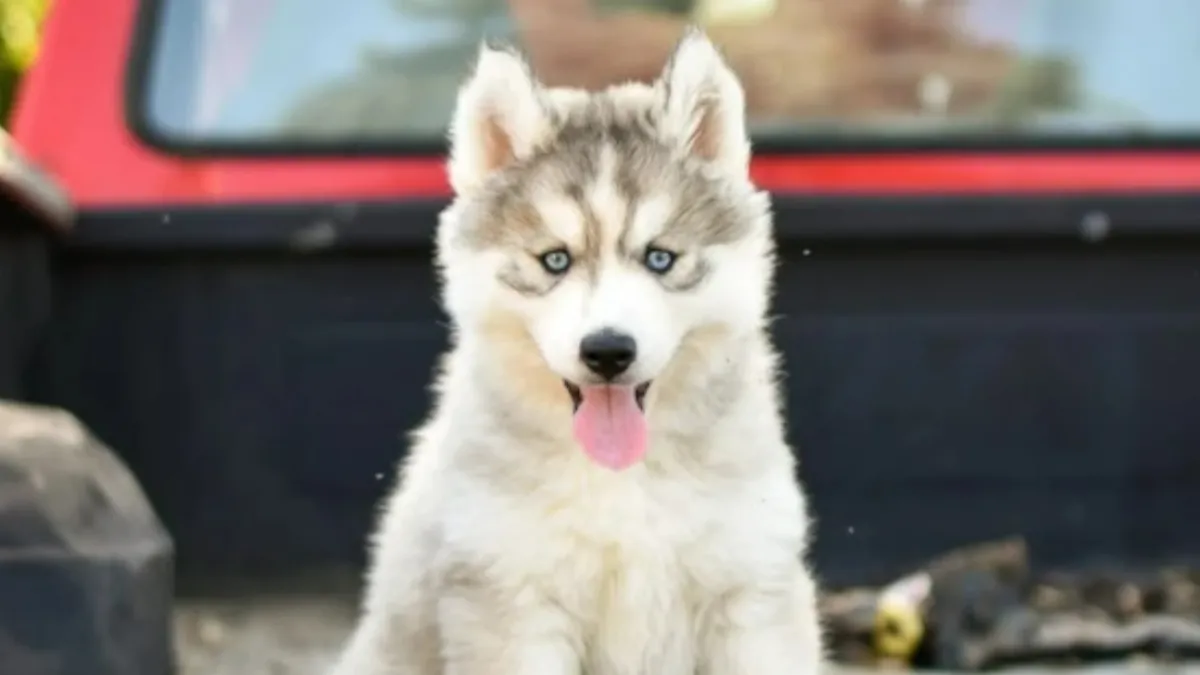
The Role of Genetics in Breeding
The American Kennel Club (AKC) does not recognize the Pomsky as a breed. Therefore, Pomskies cannot be registered with the AKC. However, breeders can register their Pomskies with other organizations such as the International Pomsky Association (IPA) and the Pomsky Club of America (PCA).
When breeding Pomskies, it is important to consider the genetics of both the Pomeranian and the Siberian Husky. The size, coat type, and temperament of the Pomsky can vary depending on the genetic makeup of the parents. Responsible breeders should perform health checks on both parents to ensure that they are free from genetic diseases that could be passed on to their offspring.
Ethical Considerations in Dog Ownership
Owning a Pomsky comes with ethical considerations. Responsible dog ownership involves providing proper care, training, and socialization to ensure that the dog is happy and healthy. Pomskies require regular exercise, grooming, and veterinary care.
It is also important to consider the impact of breeding Pomskies. Some argue that breeding designer dogs such as the Pomsky contributes to the overpopulation of dogs in shelters. Therefore, it is important to research breeders carefully and choose one who prioritizes the health and well-being of their dogs over profit.
Overall, while Pomskies cannot be AKC registered, they can still participate in various dog sports and be registered with other organizations. It is important to consider the genetics of both parents when breeding Pomskies and to practice responsible dog ownership
Conclusion:
In conclusion, the question "Can Pomsky Be AKC Registered?" stands as a pivotal inquiry within the dog breeding and ownership community. The debate revolves around whether the unique crossbreed of Pomeranian and Siberian Husky can meet the strict criteria set forth by the American Kennel Club (AKC). Despite the challenges posed by the hybrid nature of Pomskies, there is a notable interest among enthusiasts and breeders in seeking AKC recognition.
However, responsible Pomsky ownership transcends mere registration status. It encompasses providing a loving and nurturing environment, prioritizing the health and well-being of these beloved companions, and ensuring proper training and socialization. Moreover, responsible Pomsky ownership entails being mindful of the dog's impact on the community and the environment.
While the journey towards AKC recognition for Pomskies may be ongoing, the commitment to responsible ownership remains paramount. Regardless of registration status, Pomsky enthusiasts are dedicated to upholding the highest standards of care and stewardship for these unique and cherished canine companions.
Want to know more about the Pomsky?
